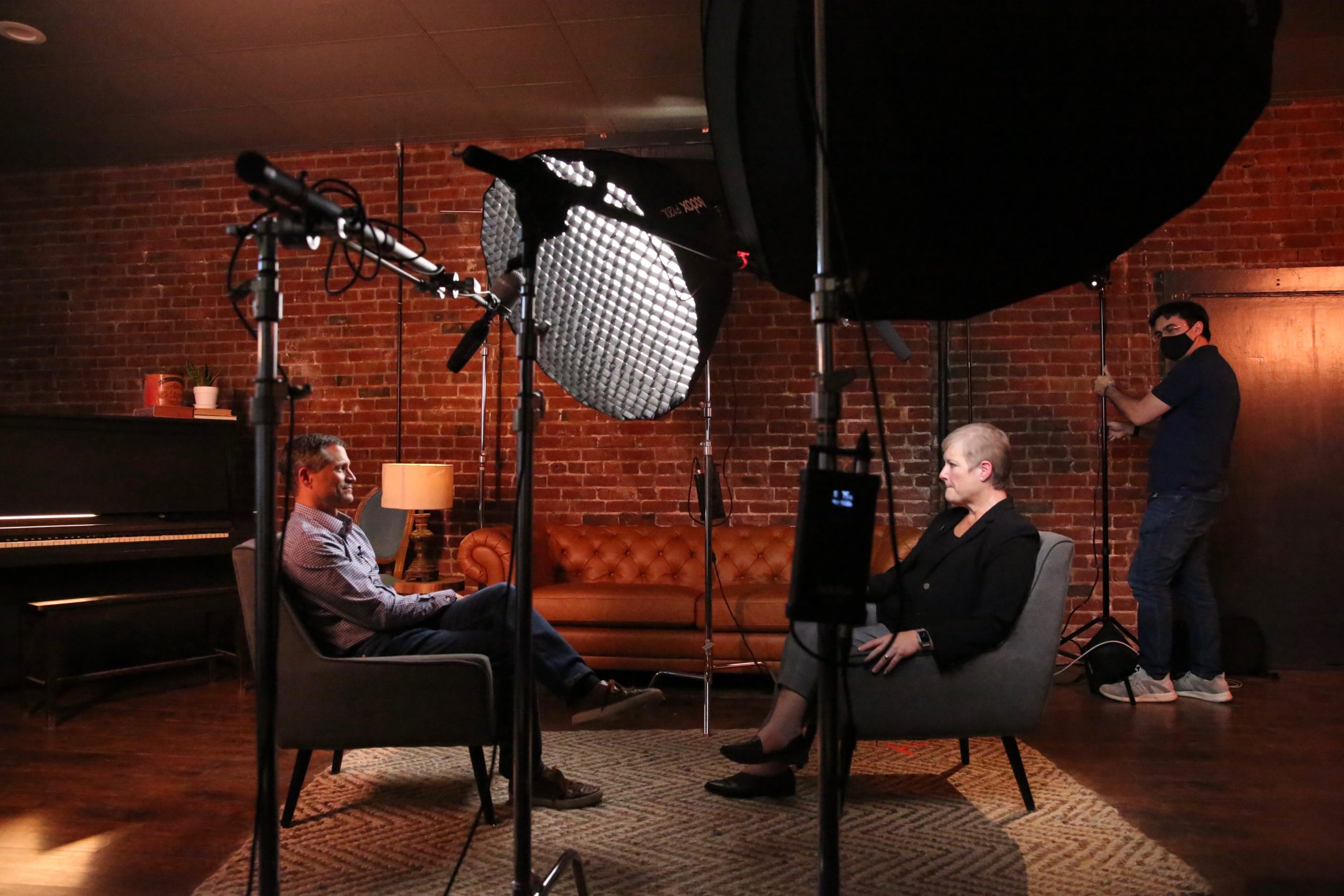Interviews are common on AM/FM and podcast shows. A great guest can sometimes be an audience draw. However, Nielsen data shows that most radio interviews are a tune-out.
Imagine that your show is a rocket headed to the moon and interviews are a giant, smoking crater where your show plummeted nose-first into the ground.
The most common problem with interviews is that a charismatic, interesting host disrupts their usual show by handing the mic to an uninteresting guest who is not skilled at keeping an audience’s attention. The show’s dedicated fans go away disappointed.
Interviews do not have to be a catastrophe. To up your guest segment game, focus attention on pre-interview preparation and on execution during the interview.
When a guest appears on your show, pre-interview preparation is crucial. Good practices include:
• Adequate time researching guests, their body of work and their topic
• Preparing thoughtful questions. Considering how to cluster a big question into smaller questions, and how to order the questions in a way that makes the guest comfortable opening up
• Requiring guests to bring 2-3 stories instead of their prepared talking points. Most late-night TV shows practice this rule without exception.
• Recording interviews every time, never airing them live. You can broadcast the most interesting moments in short clips and post the full interview online in podcast form
• Becoming skilled at saying “no.” Guests who envision increased book sales and website clicks will not be pleased to hear that they are not getting airtime, but great shows practice letting people down easy
What hosts do during the interview can also make or break the segment. Here are great ideas from some of the best media interviewers in the business.
- Powerful silence. Fresh Air’s Terry Gross intentionally pauses after a guest responds, which often causes the guest to keep talking and reveal more. The vacuum of uncomfortable silence compels people to keep talking, and before you know it Fresh Air guests have revealed something they did not plan on discussing. Producers then edit silences out of the finished show.
- Listening is the best question. Nothing opens up a guest more than being heard. Have you ever noticed a late-night host formulating their next joke instead of listening to their guest? You can be certain that the guest notices it too. Instead, avoid thinking about your next comment or question until your guest has finished speaking.
- Manage guest emotions. Before Donald Trump was president, Howard Stern Show listeners could tell that Howard was over-the-top flattering him as “Mister Trump” because it triggered Trump’s narcissism. Trump’s appearances on Stern made headlines for his outrageous, thoughtless and often offensive statements. Find your guest’s buttons and push them.
- Suspend judgement. Just as you practice active listening, noticing your guest’s body language, tone, and eye movement, be mindful of what you think and feel and how that might be telegraphed. Pressing pause on your judgement of the guest and their ideas helps regulate your non-verbal cues that create a barrier between you and a deeper conversation.
- Add pattern disruptions. With today’s shrinking audience attention span, even interesting conversations can become monotonous after only a few minutes. Many great interviewers will intersperse relevant audio clips, music, sound effects and questions from another voice into the interview to reengage the audience.

